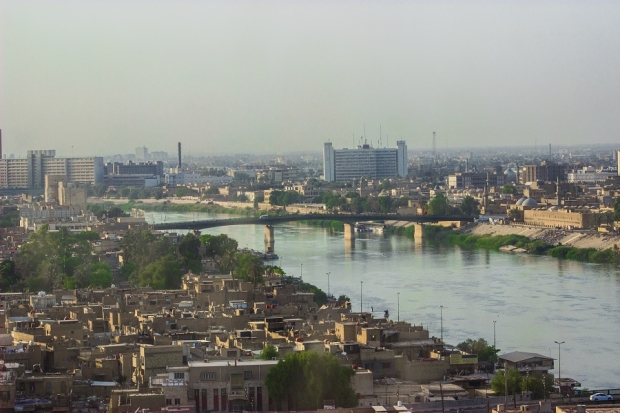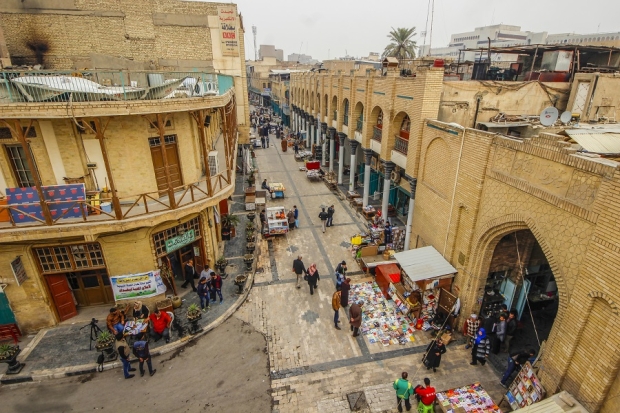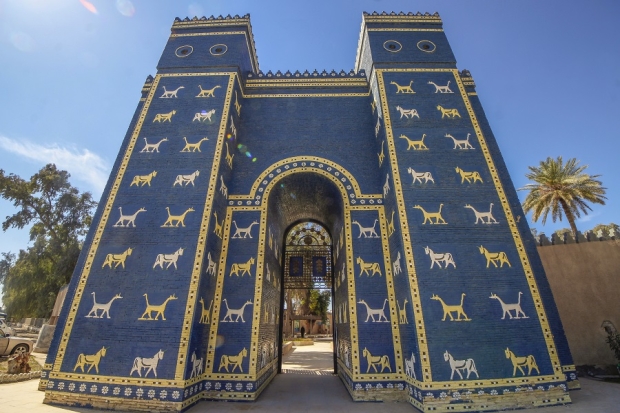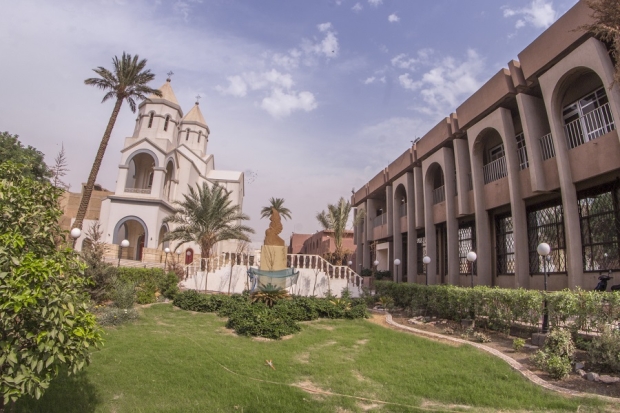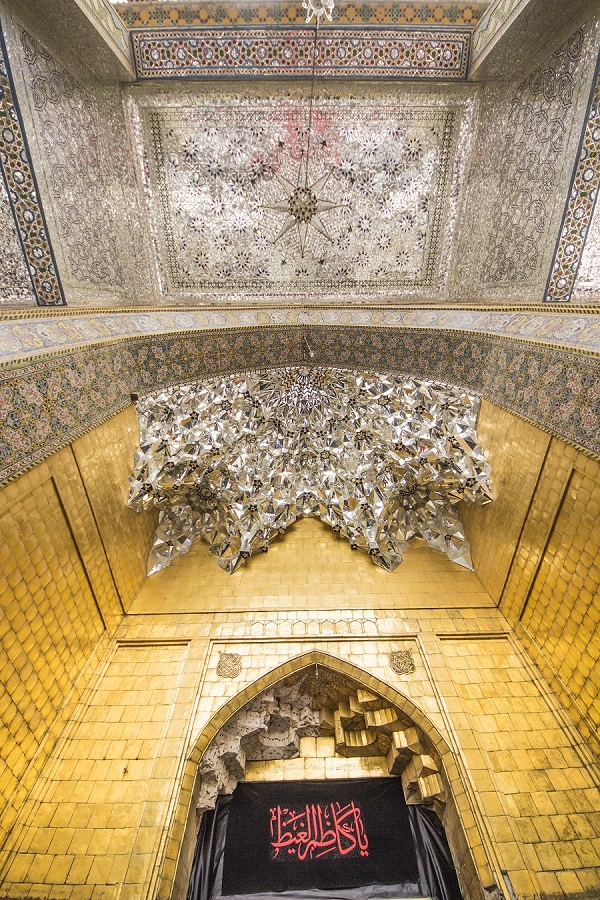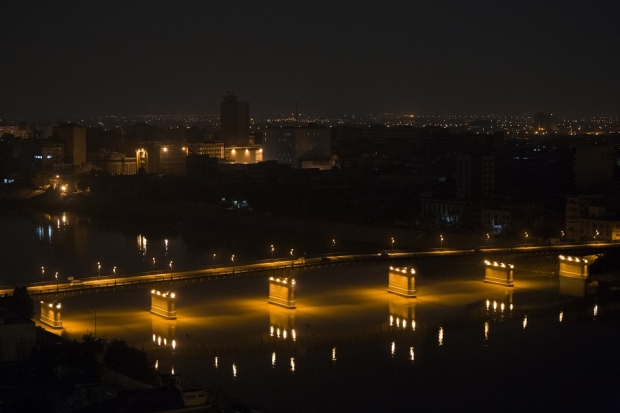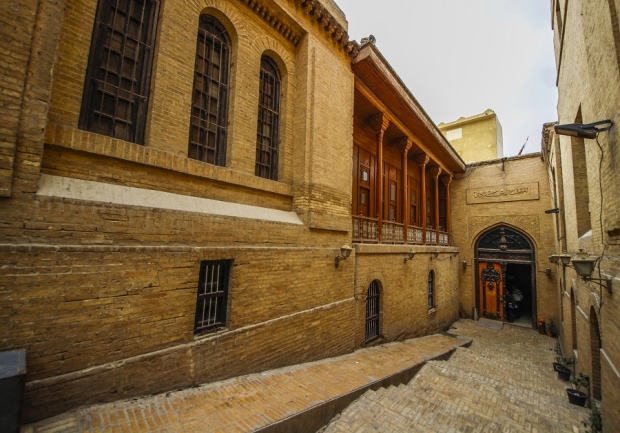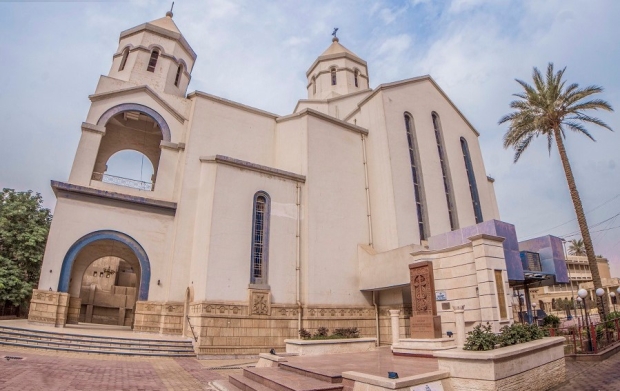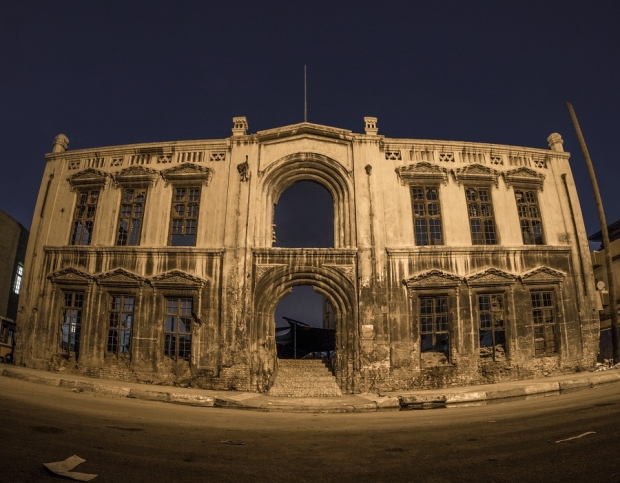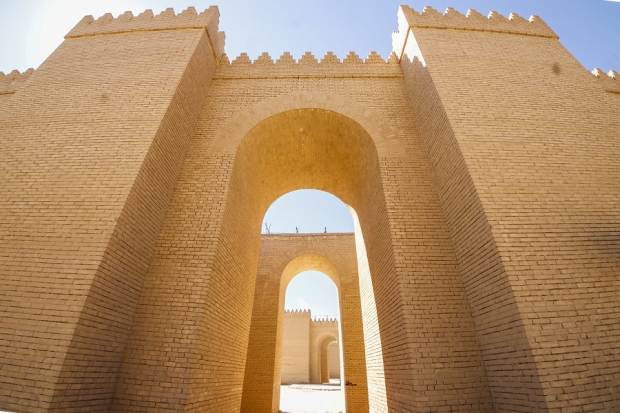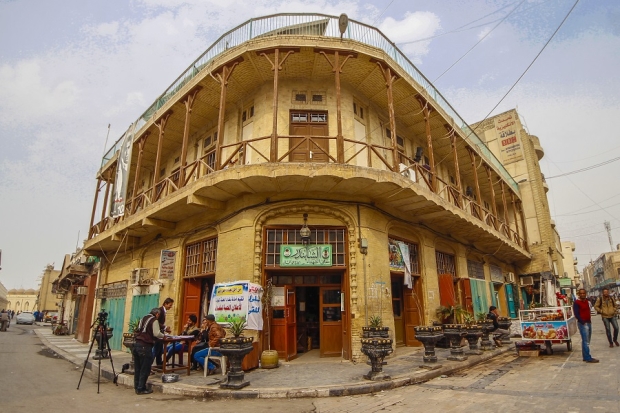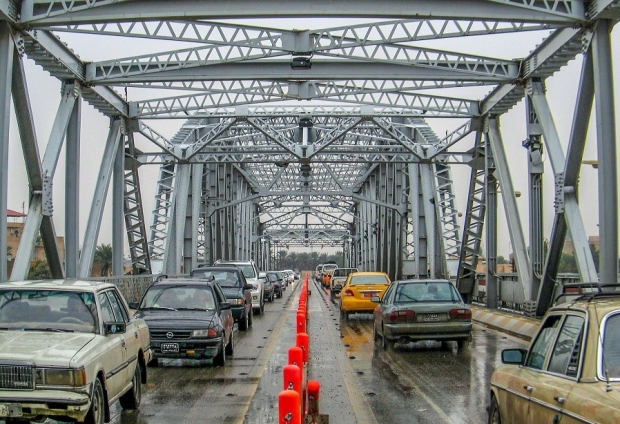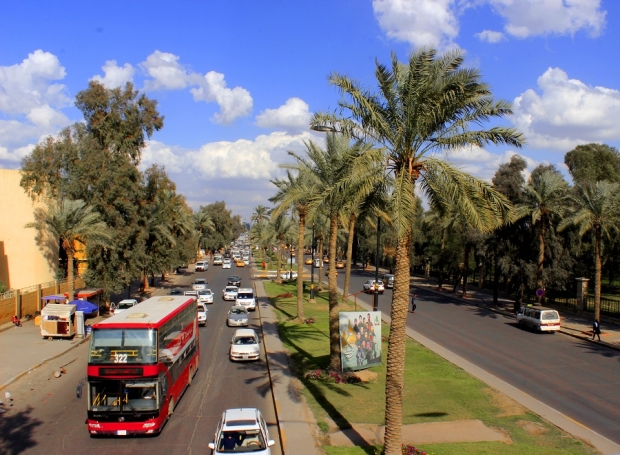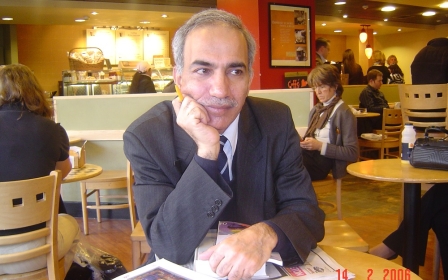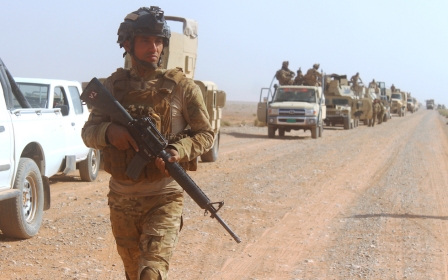Young Iraqis look beyond war: 'We have everything'
BAGHDAD - Mustafa Nader is sitting in his eclectically decorated bedroom in Baghdad, complete with an Arabic translation of George Orwell’s 1984, the pages of French novels pasted on his walls as wallpaper, and a jumble of camera boxes.
“My work has shown peace in the middle of war. I search for positive things," Nader told Middle East Eye.
Everyday Iraq
He wanders the lanes of old Baghdad and while at the book market on al-Mutannabi street, he and a friend make a short film about their city. “Say something positive about Iraq,” they ask passers-by; the answers will form the thrust of his video story. Nader enters the neighbouring souk, selling stationery, fridge magnets and the odd sectarian flag, and creates an Instagram photo story.
Beyond the blasts
The city has been rocked by car bombs and sectarian strife, with the Islamic State (IS) group claiming attacks on the capital while taking other major cities - including Mosul - as it swept through Iraq and Syria in 2014, occupying one-third of Iraq's territory.
'My work has shown peace in the middle of war'
- Mustafa Nader, photographer
In late 2017, however, Baghdad's residents report far fewer incidents, with checkpoints relaxed and the atmosphere more pleasant. Ordinary Iraqis put that down to successful military operations against IS, which has been all but ousted from Iraq.
“People [tell] me: ‘That’s fake, that’s editing, that’s filters.’ Some people are negative not about me, but about the city. They hate this place," he said.
Positive thinking
Mustafa's positive attitude has a story behind it. In 2014, the young photographer and fine art student at Baghdad’s Institute of Fine Arts planned to embed with the Iraqi army on a reporting assignment. But blood tests required before he accompanied troops showed abnormal results and repeat examinations confirmed the concerns. On 18 October 2014, doctors told him he had cancer.
For two weeks, Mustafa did not follow up on the results.
'Some people are negative not about me, but about the city. They hate this place'
- Mustafa Nader, photographer
He eventually started a course of chemotherapy, which led to vomiting, dizziness, and hair loss.
“I felt that my body was telling me it would die. My body can’t do everything. I just wanted to sleep, sleep, sleep,” he added.
Inspiring others
His ability to gather strength is remarkable. The 22-year-old has already succeeded in inspiring a generation of Iraqis, tired of years of illness, war and terrorism.
'I don’t know why we are dying every day'
- Mustafa Nader, photographer
“I got a lot of comments and likes,” he said, against the backdrop of nick-nacks, trinkets covered in Cyrillic text, and a red and blue chequered blanket. The comments are usually positive, such as "You made my day. You make me smile. You are my role model".
He realises that there are still many problems to overcome, but he sees his voice as a balance to the stream of bad news.
“We have a lot of negative news [already]," he said. "I focus just on the positive in my country."
Not only war and death
He shows a short film he made after a fatal bomb attack on an ice-cream shop in Baghdad’s central Karrada district this May, which was claimed by IS. The film was made for the Peace News Network, a small news network run from New Zealand and Washington DC with the aim of bringing more positive stories from countries such as Iraq to a global audience.
'I felt that my body was telling me it would die'
- Mustafa Nader, photographer
Baghdad After the Bombing shows how people return to al-Faqma ice-cream shop just days after the explosion, which left at least 21 people dead.
“My film talks about Baghdad. Everything’s available in my country. We do not just have war and death. We have everything,” he asserted.
Mustafa is not alone in his quest to show Iraq’s history, traditions and culture.
'Iraq is not only the cradle of civilisations – it was also a very well-developed country in the last century'
- Mustafa Nader, photographer
“Iraq is not only the cradle of civilisations – it was also a very well-developed country in the last century,” he said.
“But with all the wars, refugees and immigration, and, of course, ISIS, it got a bad reputation and image, not only in the foreign world, but also in some parts of the Middle East," he added.
For Iraq
With a team of volunteers, he developed Lil-Iraq – For Iraq – an online platform showcasing the work of successful Iraqis past and present.
The idea is to increase the amount of quality, accurate information in English and Arabic available about Iraq online.
Figures featured include Ahmed Matar, one of Iraq’s greatest living poets, musician and teacher Mustafa Sabe’ and the late Zaha Hadid, the renowned architect.
“As an Iraqi who knows about Iraq’s history, and meets brilliant and talented Iraqis all the time, I want to show the good positive part of Iraq and Iraqis,” al-Kaim said.
The next stage of the project will be interactive and allow contact with contemporary successful Iraqis via the online platform.
"This will not only highlight talented and successful Iraqis, but it will also be used for crowdsourcing of these people’s expertise and to contact them directly,” al-Kaim explained.
“I want peace. I just don’t want war. I don’t know why we are dying every day."
This article is available in French on Middle East Eye French edition.
Middle East Eye propose une couverture et une analyse indépendantes et incomparables du Moyen-Orient, de l’Afrique du Nord et d’autres régions du monde. Pour en savoir plus sur la reprise de ce contenu et les frais qui s’appliquent, veuillez remplir ce formulaire [en anglais]. Pour en savoir plus sur MEE, cliquez ici [en anglais].


